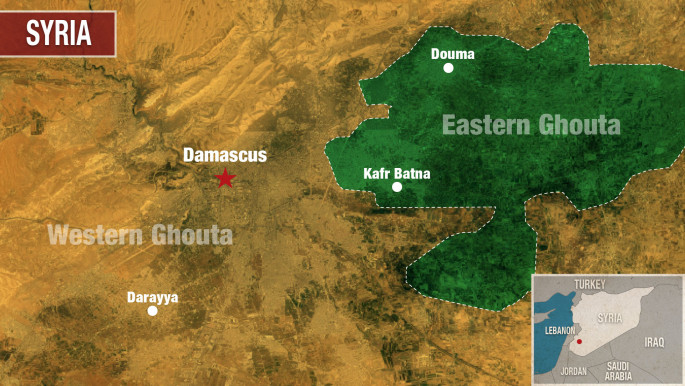'Despair in their eyes': Hunger waits at the doors of Damascus as Assad blocks aid
As the government and its opponents wrap up another fruitless round of talks in Geneva, humanitarian officials warn that conditions outside Damascus have reached crisis levels, with the government maintaining a siege on the Eastern Ghouta suburbs that has trapped close to 400,000 people without enough food, fuel or medicine for the winter.
They say patients with empty stomachs and kidney failure are dying in their beds while waiting for evacuation to hospitals just minutes away.
The fighting in Syria’s nearly seven-year war has tapered off in many areas since local ceasefires took hold, but the suffering in Eastern Ghouta – Damascus’ once fertile hinterland, now cut off from the world – has become worse.
According to the UN, roughly one in eight children are malnourished in Eastern Ghouta, a shocking jump from one in 50 in May.
The brutal Assad regime is refusing to allow convoys in, top UN humanitarian official for Syria, Jan Egeland, said last week. The regime has also refused to approve a list of nearly 500 people urgently needing medical evacuation.
“We have people here who are only eating a meal every two or three days,” Ismael Yasin, a member of Eastern Ghouta’s local council said. “People’s faces are turning yellow from hunger.”
The UN envoy to Syria, Staffan de Mistura, called the Eastern Ghouta blockade and others like it a “medieval” approach to war. Amnesty International said last month that the government’s use of sieges against civilians – a tactic it called “surrender or starve” – was a crime against humanity.
The brutal Assad regime has followed the same strategy to restore its authority over the cities of Aleppo and Homs. The government denies besieging opposition areas, saying the militants, whom it refers to as “terrorists,” withhold aid.
But the tactic has proven brutally effective for the government, which in the last two years has managed to recapture a constellation of towns around Damascus using the same playbook.
In Zabadani and Daraya, the government executed its strategy so well that it managed to completely depopulate the two towns, which had a combined population of about 100,000 people before the war.
Shortages have become so dire that residents are eating out of the trash and parents are skipping meals so their children can eat, Jakob Kern, the World Food Programme’s top official in Syria said.
“They look exhausted, they look tired, and there is this despair in their eyes,” said Kern, who entered Eastern Ghouta with one of the few aid convoys the government has allowed in recent weeks.
The convoys have provided just a trickle of relief – supplies for tens of thousands of people that will last only a month or less, at a time when hundreds of thousands are in need.
Photos from Eastern Ghouta show children gaunt with hunger, their skin wrinkled and aged. Mothers are not producing milk to feed their infants, and baby formula is too scarce and expensive for most families to afford. Driven by desperation, some residents are trying to eat animal fodder.
 |
|





 Follow the Middle East's top stories in English at The New Arab on Google News
Follow the Middle East's top stories in English at The New Arab on Google News


